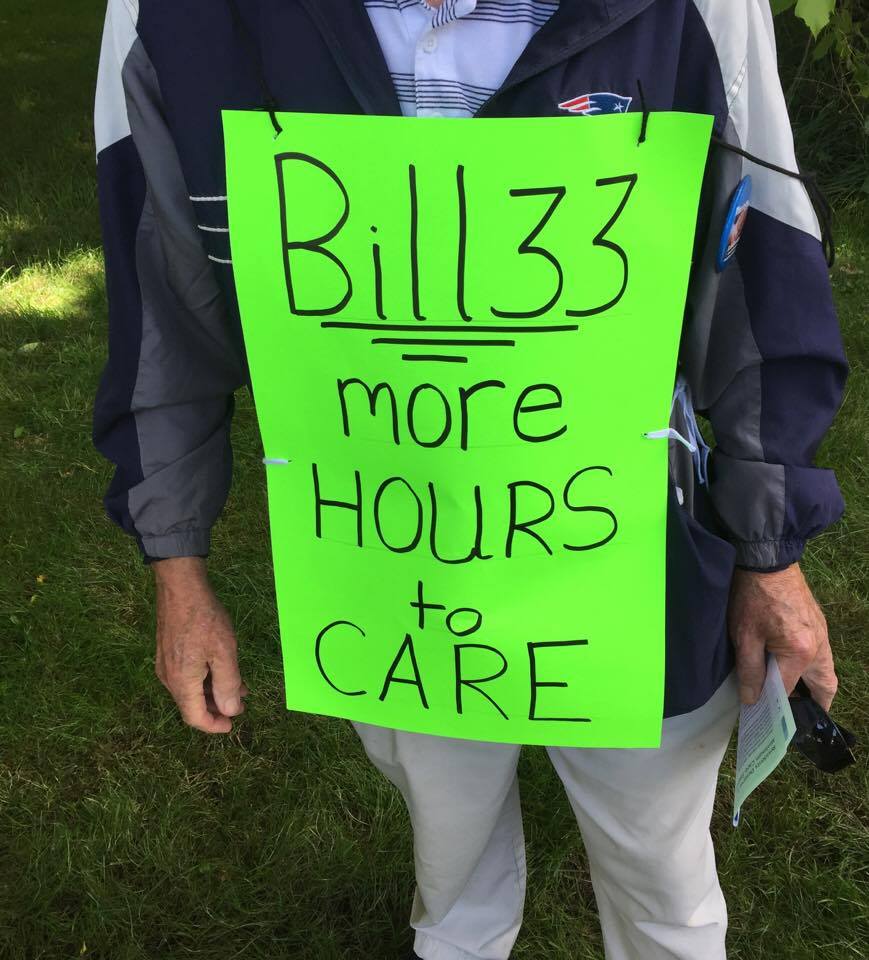Nurses, personal support workers, and family members made their call for a legislated standard of care during a rally outside St. Joseph’s Villa in Dundas Tuesday afternoon.

It’s part of a series of stops across Ontario aimed at putting pressure on the political parties to implement, by law, a standard that requires four hours of direct care, daily.
READ MORE: Horwath calls for full inquiry into Ontario senior and long-term care system
Anne Bennett says, without it, people like her mother, who has dementia and is wheelchair bound, get left behind.
“Two days this week, I found my mom after lunch, sitting in a soiled disposable brief,” she said.
While she doesn’t know how long her mother was left without care, Bennett says she doesn’t blame staff.
“When there is only three people for thirty residents, they can’t be everywhere at once, they do the best they can.”
READ MORE: COMMENTARY: Ontario’s nursing home crisis
PSW Heather Neiser says a standard of care would help tackle these incidents because it would mean more frontline staff to share the workload, which would mean more time spent with each resident.
“You’re taught how to give companionship, spend time, to dress them appropriately, to promote independence,” Neiser said.
“When you get to an environment like this, you slap on a diaper and you’re lucky if they get five minutes of care at one time a day.”
READ MORE: 1 in 5 Canadian seniors entering long-term care too soon: report
CUPE estimates that putting a four-hour standard of care in place would cost the province around $1.5 billion.
Funding, they argue, that provinces have already invested.
A private member’s bill that would put in place a standard of care is currently before the legislature and is expected to go to a second reading in the Fall.








Comments